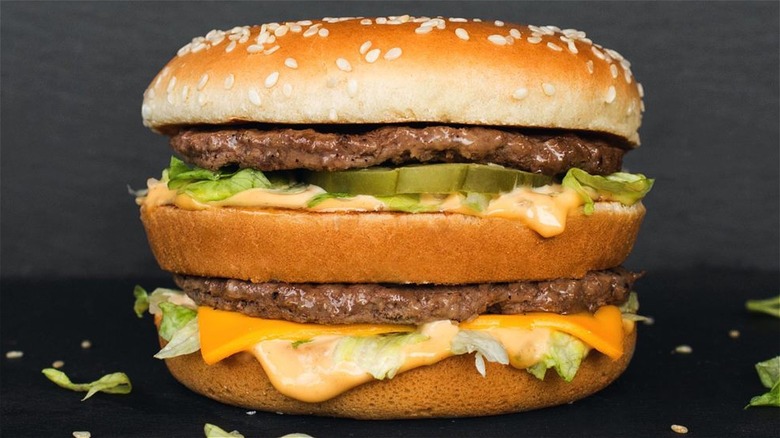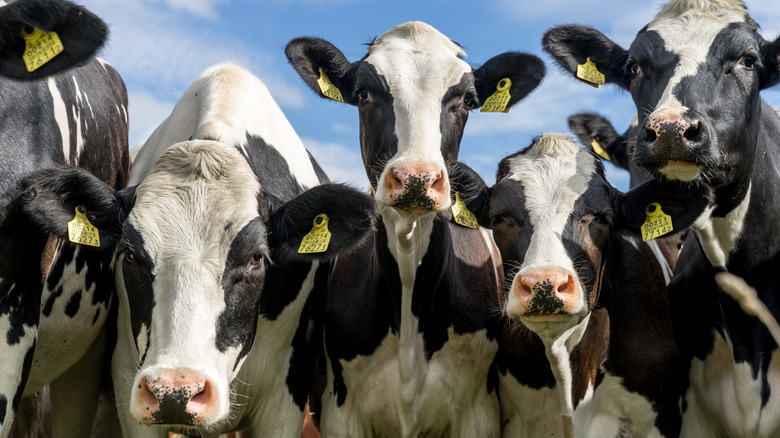Why Customers Are Begging McDonald's To Stop Using Antibiotics In Its Beef
On Tuesday February 8, the U.S. PIRG, which is a federation of public interest research groups, sent a petition with 25,000 signatures to McDonald's. They wanted the chain to carry out the promise it made in 2018 to reduce the use of antibiotics in its beef sources. What spurred this call, they explained in a press release, was a report which found 1.2 million have died from diseases that developed an immunity to medicinal drugs. "Antibiotic resistance is a global health crisis fueled in part by overusing life-saving medicines to produce cheaper meat," Matt Wellington, U.S. PIRG's Public Health Campaigns Director, said.
As stated, McDonald's had indeed made a big announcement that it would reduce its use of antibiotics. However, according to reporting by Reuters, this was supposed to have occurred by the end of 2020. Even accounting for pandemic-induced disruptions, measures should have been in place for those reductions to be made by now.
The argument against antibiotics
The people encouraging the beef industry to use less antibiotics do not necessarily want the practice eliminated completely. However, the fear articulated in the U.S. PIRG's press release is that unregulated antibiotic use in cattle will give bacteria the room it needs to evolve against our medication. Ideally, one would only use antibiotics when it's truly and medically warranted.
"[Reducing our use of antibiotics for cows is] about preserving these valuable tools for our use 10 to 20 years down the road," Mike Apley, a veterinarian and professor at Kansas State University's College of Veterinary Medicine, told Beef Magazine. He continued by pointing out that any new antibiotics are just variations on antibiotics that were approved in 1978. "Those modifications may help for a short time, but eventually they lose their effectiveness," he adds.
The alternative to using antibiotics, Joseph Fischer of Fischer's Farms in Indiana told Food Print in November, is to raise the cattle in such a way that it won't get sick. For example, a lot of antibiotics are used to assuage the abscesses caused by sending cattle to a feedlot. So, Fischer argues, don't send them to a feedlot. It will be more expensive and the cows won't be as fat. It would, however, address the concerns about bacteria evolving into ever more infectious variants. In a post-COVID world, many may see that as worth it.

